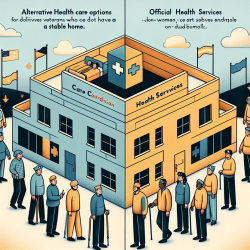Boost Your Skills: Insights from Medical Student Wellness Research
In the world of education, particularly in the medical field, student wellness is a pressing concern. The study titled Assessment of Student Perspectives on Improving Wellness in Medical School: Qualitative Results from a Cross-Sectional Survey of Medical Students in Florida offers valuable insights into how wellness can be improved for medical students. This blog explores the key findings of this research and how practitioners can implement these insights to enhance their skills and support student wellness.
Understanding the Research
The study surveyed 864 medical students across nine medical schools in Florida to gather their perspectives on wellness. The results highlighted several areas for improvement, including curriculum changes, cultural shifts within schools, and enhanced resources for students. These findings are crucial for educators and administrators who aim to create a supportive environment for medical students.
Key Takeaways for Practitioners
- Curriculum Changes: Students suggested a more flexible and consistent scheduling of classes, reducing mandatory activities, and incorporating study time. They also emphasized the need for a curriculum that focuses on clinical proficiency and preparation for licensing exams.
- Promoting a Supportive Culture: Improving communication between students and faculty, fostering peer support, and creating a non-competitive atmosphere were highlighted as essential steps to enhance student wellness.
- Access to Resources: Providing easy access to mental health counseling, promoting healthy lifestyles through diet and exercise, and offering wellness programs integrated into the curriculum were recommended.
Implementing the Insights
For practitioners, implementing these insights involves a multifaceted approach:
- Review and adjust the curriculum to include more flexible scheduling and focus on practical skills.
- Encourage open communication and support systems among students and faculty to foster a positive learning environment.
- Ensure access to mental health resources and promote wellness activities as part of the school culture.
By taking these steps, educators can significantly impact student wellness and contribute to the development of healthier future physicians.
Encouraging Further Research
While the study provides a comprehensive overview of student perspectives, further research is encouraged to explore the implementation of these recommendations in different educational settings. Practitioners are urged to conduct their own studies and share findings to build a robust body of knowledge on student wellness.
To read the original research paper, please follow this link: Assessment of Student Perspectives on Improving Wellness in Medical School: Qualitative Results from a Cross-Sectional Survey of Medical Students in Florida.










